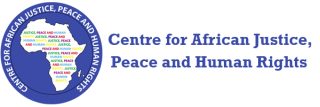“No country can really develop unless its citizens are educated. Education is the most powerful weapon which you can use to change the world. Education is the great engine of personal development.”
Nelson Mandela
Many developing countries experience disproportionate dropout rates among school-age children. According to a news article in Nigeria, and a recent study conducted by The United Nations International Children’s Emergency Fund (UNICEF), only two out of every 10 schools in Nigeria have basic water supply as well as a functioning sanitary service.
WaterAid, an NGO in Nigeria, compiled a report in 2016 showing that Nigeria was one of the most unsanitary countries in the world. According to an article published by AllAfrica “the report put Nigeria’s population without access to safe, private toilets at a staggering 71 percent (over 130 million people), with 25 percent (over 46 million) practicing open defecation.” Nigerians face a high risk of disease and preventable death due to the lack of proper sanitation.
Nigeria is not an isolated case. While many of us cannot imagine living without a sanitation facility, the reality is that there are 4.5 billion people living without a safe toilet, and 892 million people practicing open defecation in the world today.
This has a direct effect on education, especially for young girls. When schools do not have proper sanitation facilities, young girls feel they cannot attend classes when they are menstruating. Missing classes every month causes them to drop out of school. UNESCO estimates that one in ten adolescent girls in Africa cease to attend school when they begin their period.
The girls that do stay in school may face an even graver danger. School girls use makeshift sanitary pads from household items like fabrics, or animal skins which carry the risk of infection and have a dangerous impact on their sexual and reproductive health. There are also many risks associated with the fact that schoolchildren cannot wash their hands after using the loo or openly defecating. According to 2015 WaterAid research, “61 percent of Nigerian girls interviewed use repurposed cloth to manage their first few periods, and 45 percent stay away from school for a few days when they’re on their period.”
Thankfully, people are beginning to recognize the severity of this problem. Nigerian social entrepreneur Bamisaye Folasade is passionate about menstrual hygiene. She started MyPeriod Kit, which provides sanitary materials for young girls and women in Nigeria and the West Africa sub-region. The aim of MyPeriod Kit is to help promote menstrual hygiene, especially in rural communities where young girls often use mud, animal skins and leaves to manage their periods. Because of the lack of proper sanitary products many girls are ashamed of menstruating.
The Wheels of Hope Rising Foundation, an NGO based in Nigeria, has echoed the sentiment that the lack of proper sanitation facilities in schools is a huge challenge affecting the education of girls. The Founder, Mr. Adigun Temitope, is also concerned by the lack of support for young girls menstruating, especially in rural areas. Therefore his organization partnered with Always Nigeria’s #APadAGirl2025 project to provide sanitary pads to young girls in Nigeria.
“Our foundation recognizes that menstrual hygiene is fundamental to the dignity and wellbeing of women, girls, and an important part of the basic hygiene, sanitation and reproductive health services to which every woman and girl has a right,’’ Temitope said in an article posted to the News Agency Nigeria website.
According to UNICEF girls’ attendance in school increases when proper sanitation facilities exist.
Solutions to Girls Missing School Due to Monthly Period:
- Break the stigmas associated with menstruation through: initiatives like the #APadAGirl2025 project educating and distributing pads to young women.
- Health talks by medical experts on puberty, the menstrual cycle and menstrual care.
- Proper sanitation facilities in schools which also includes: separate toilets for girls, water and cleansing materials and safe disposal of used sanitary products.
We at Centre for African Justice, Peace and Human Rights hope to provide further support to tackle this sanitation crisis by spreading awareness and by building toilet facilities in schools in Africa. We would like to extend our heartfelt appreciation to European Third World Association for funding our Right to Education project.
